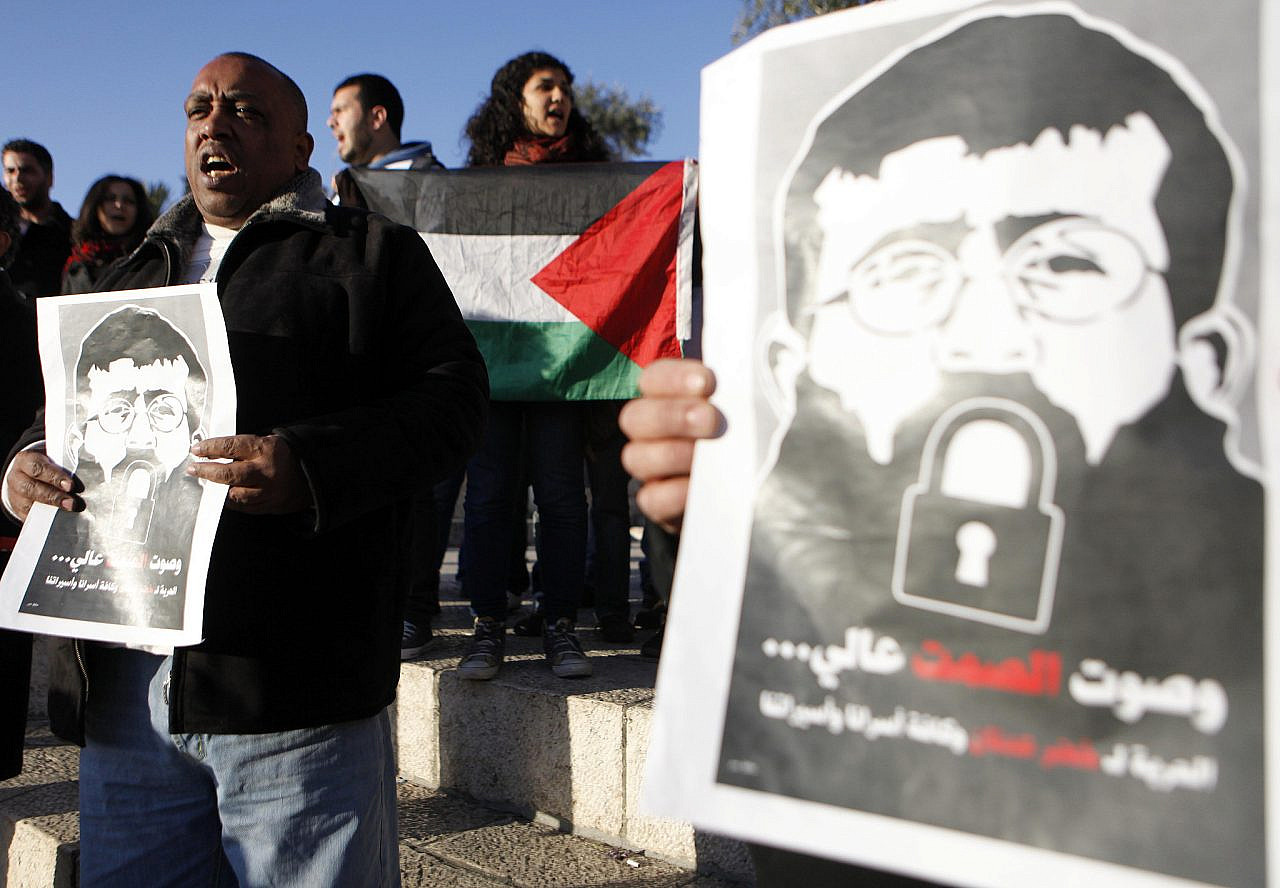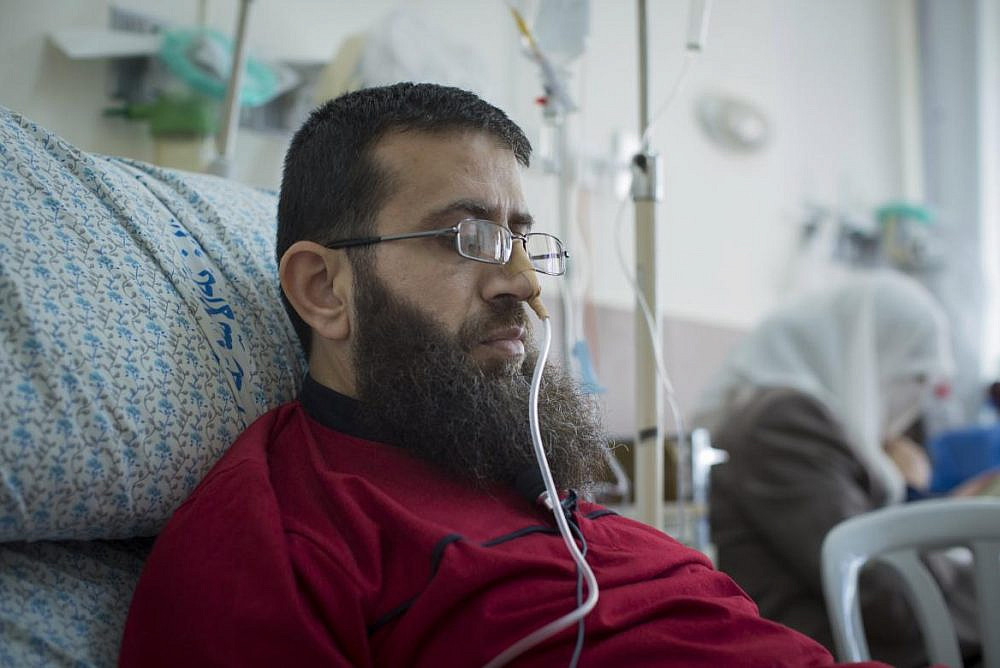For the past 75 days, Palestinian prisoner Khader Adnan has been on hunger strike to protest his detention. Despite his deteriorating health, an Israeli military court on Monday delayed handing down a decision regarding Adnan’s request for release until April 27, or until the court can see a report summarizing the prisoner’s health.
Adnan, 45, who is married and has nine children, has become a symbol among Palestinians after having been arrested by Israel 12 times, spending a total of eight years behind bars, and going on hunger strike five times. In the past, Adnan’s hunger strikes were against his administrative detention — a common method used by Israel to hold Palestinians without filing charges, telling them what crimes they are accused of, or presenting the evidence against them.
Adnan’s previous hunger strike, in 2018, lasted almost 60 days, until he was released from jail on the basis of time served after finally receiving a one-year sentence. In 2015, Adnan’s 54-day hunger strike, which brought him to the brink of death, also ended with a deal for his release. Three years prior, Adnan went on hunger strike for 66 days, again agreeing to end his protest in exchange for his release from jail.
This time, Adnan’s arrest is not administrative, but rather comes after an indictment. According to Adnan’s attorney, Jamil Khatib, Adnan was indicted for membership in a proscribed organization, Islamic Jihad, which the attorney says was “not based on any evidence or even a confession, but rather on incriminations by people who do not know him. The second charge is incitement, based on intelligence by Israel’s cyber unit from [Adnan’s] speeches published in the media, which it claims are considered incitement.”
Even as his health has deteriorated as a result of the prolonged hunger strike, Adnan has repeatedly refused to be examined by the Israel Prison Service (IPS) medical team, which wrote the report about his medical condition without an examination.

Khatib’s repeated requests to transfer Adnan to a hospital due to his declining health have so far been refused, and he remains hospitalized in the prison clinic in Ramla. Israel has denied Randa Adnan, his wife, visits throughout the hunger strike. “Khader is lying on the bed, not moving, his body is yellow, he cannot stand on his feet, he barely speaks,” Randa said. “This is not his first hunger strike, but it is his longest so far. His first strike in 2011 lasted 67 days, but then, on day 55, he was given two calcium and potassium pills. Today he is not taking anything except water. His condition is very serious.”
Randa said that many officials, as well as Physicians for Human Rights-Israel, have attempted to visit her husband to check on his condition, but the IPS will not allow it. According to her, Adnan is refusing to provide any information on his health because it may serve the Israeli authorities.
This week, the Palestinian Prisoner’s Club announced that Adnan had reached a dangerous stage and that he faces “imminent death.” The organization further called on the authorities, as well as the international community and human rights groups, “to intervene to save Adnan’s life before it is too late.”
False rumors about Adnan’s death spread earlier this week, causing a brief firestorm on social media that subsided only after Israel refuted the news.
“Adnan is considered very important in the Palestinian street,” Randa said. “The false news about his death caused a big storm. We are not surprised by this news. I believe the occupation is trying to prepare the Palestinian street for what may happen [should he die].
“Despite his dire situation, he has so far refused any negotiations, and demands his immediate release. I am very worried about his life and my heart almost stops every time the phone rings. We know that at any moment we may be informed of his death.”
A version of this article was originally published in Hebrew on Local Call. Read it here.



